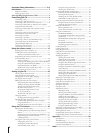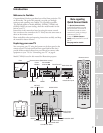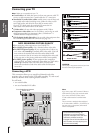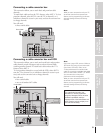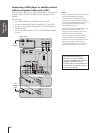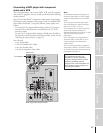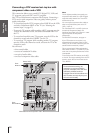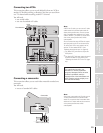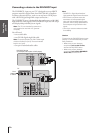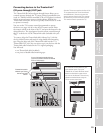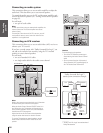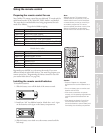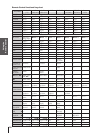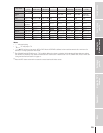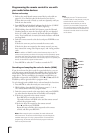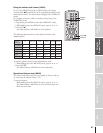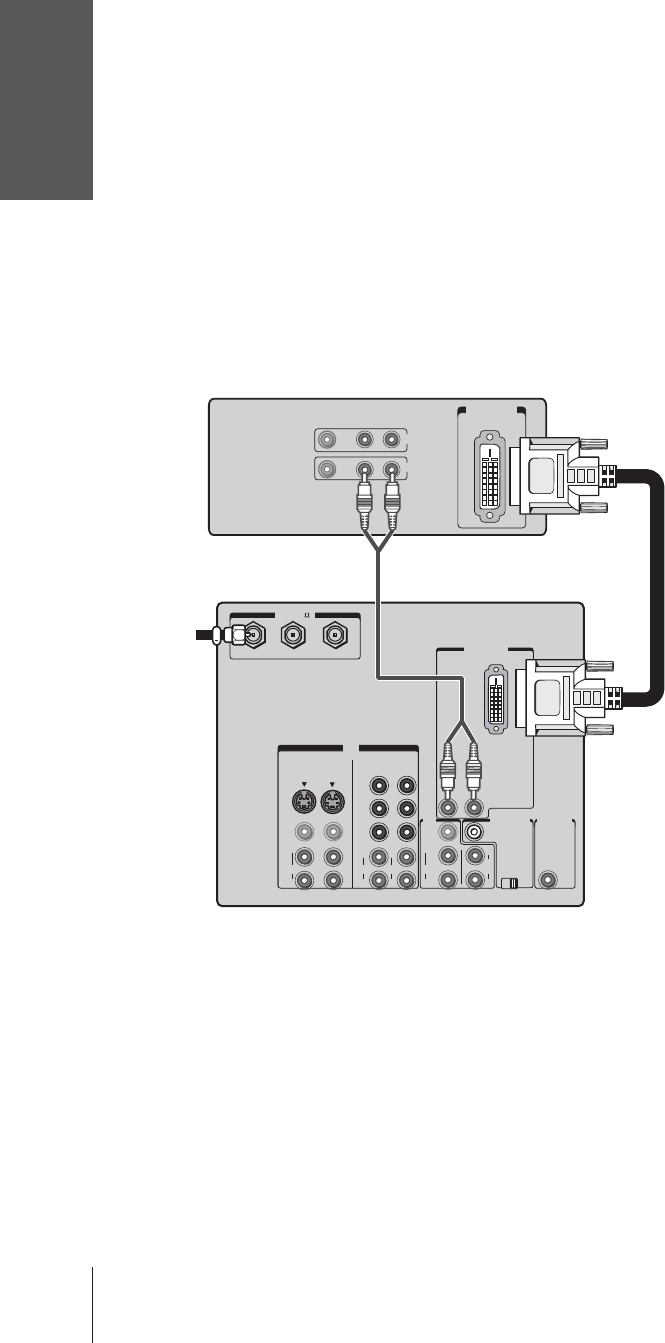
Introduction
Connecting
your TV
Using the
Remote Control
Setting up
your TV
Using the TV’s
Features
Appendix
Index
14
Note:
1
DVI/HDCP = Digital Visual Interface/
High-bandwidth Digital Content Protection.
2
EIA/CEA-861 compliance covers the
transmission of uncompressed digital
video with high-bandwidth digital content
protection, which is being standardized for
future reception of high-definition video
signals.
3
Consult your consumer electronics dealer
for availability.
Caution:
To ensure that the DVI/HDCP device is reset
properly, it is recommended that you follow
these procedures:
• When turning on your electronic
components, turn on the TV first,
and then the DVI/HDCP device.
• When turning off your electronic
components, turn off the DVI/HDCP
device first, and then the TV.
TV
DVI/HDCP device
(for example, set-top box or DVD player)
From
Antenna
or Cable
Connecting a device to the DVI/HDCP input
The DVI/HDCP
1
input on your TV is designed to accept HDCP
program material in digital form from EIA/CEA-861–compliant
2
consumer electronic devices, such as a set-top box or DVD player
with a DVI-D digital single-link output connection.
3
The DVI/HDCP input is designed for best performance with 1080i
high-definition video signals. The DVI/HDCP input also will accept
and display 480p and 480i picture signals.
Note: This TV is not intended for connection to
and should not be used with a PC (personal
computer).
You will need:
• one coaxial cable
• one DVI-D digital single-link cable
Note: For proper operation, the DVI-D cable length
should not exceed 3m (9.8 ft). The recommended
length is 2m (6.6 ft).
• one pair of standard audio cables
ANT
(
75
)
ANT-1 ANT-2OUT
PB
PR
Y
L/
MONO
AUDIO
S-VIDEO
VIDEO 1
VIDEO 2
COLOR
STREAM
HD-1
COLOR
STREAM
HD-2
VIDEO
R
IN
L
AUDIO
R
PB
PR
Y
L
AUDIO
R
VIDEO
L/
MONO
ON OFF
OUT
L
AUDIO
AUDIO
VAR
R R
OUT TheaterLink
CHANNEL IN
AUDIO CENTER
DVI/HDCP IN
R
AUDIO
L
VIDEO AUDIO
LR
IN
OUT
DVI/HDCP
OUT



